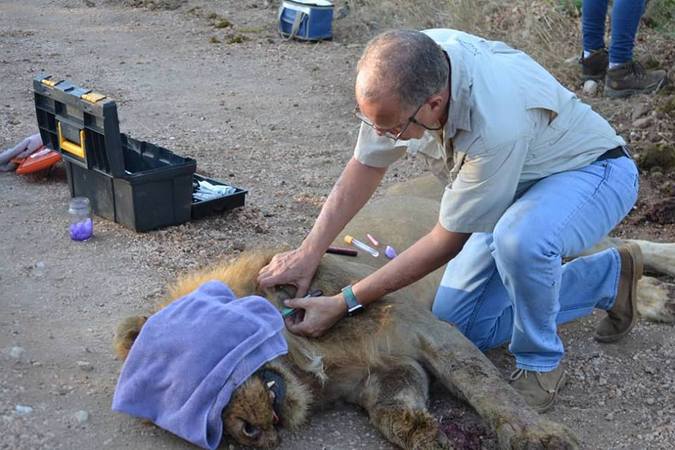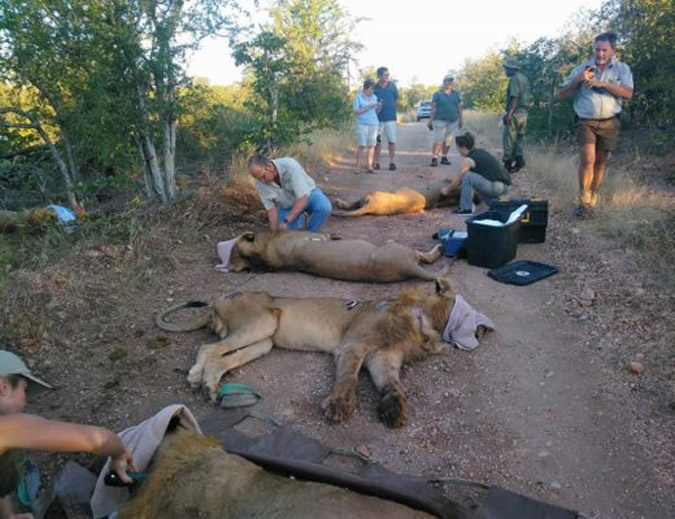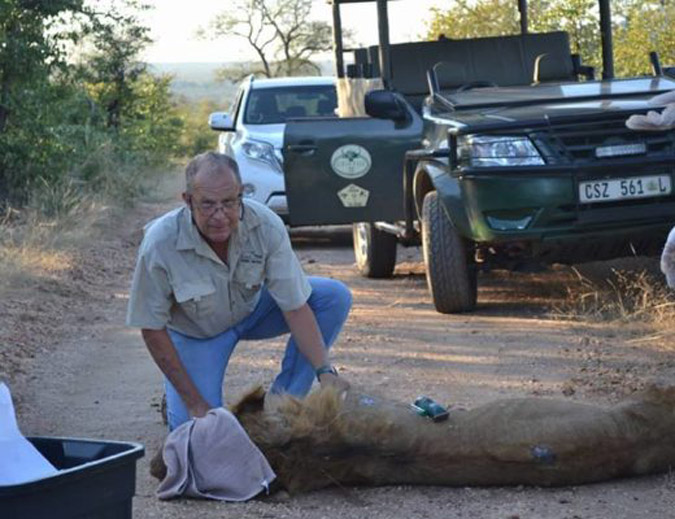
Sourced from third-party site: Letaba Herald
A veterinarian, Dr Rogers, and the ProVet Wildlife team recently darted a pride of five lions in the northern part of Greater Kruger. This happened after one member of the pride was reported to be in a very bad condition and extremely emaciated.
The managers of the property became increasingly concerned for the animal’s health as they witnessed that he was struggling to move. They noticed that the pride were looking after him, making kills and allowing him to feed.
Dr Rogers made the decision to dart all five members of the pride in order to assess their condition, because of the suspicion of tuberculosis (TB).
Upon darting the emaciated male, Dr Rogers and the team made the decision that his condition was too bad, and euthanised him. Blood was then taken from the remaining four pride members and later taken to Skukuza for processing.

From there, the samples will go to the University of Stellenbosch for analysis of the presence of the TB organism. Should the samples come back as positive for the disease, further intervention from a veterinary perspective may not be necessary.
Dr Rogers advises that the animals will be monitored and nothing will be done until they start showing clinical signs, which may take many years or perhaps never show.
A postmortem of the euthanised male, conducted by Dr Rogers on Monday, showed that he was heavily infested with TB.
TB is not a naturally occurring disease in wildlife in the Greater Kruger area. It is thought that TB first came to South Africa through cattle from Europe many years ago.
Through contact via the fence, the disease was transferred to buffalo in the Park and then the cycle moved on to lions and many other species in the Greater Kruger area.
A study conducted in 2016 by Stellenbosch University’s animal TB research group suggests that as many as half of the lions in the southern region of the Kruger National Park (KNP) may be infected with a form of animal tuberculosis.

To comment on this story: Login (or sign up) to our app here - it's a troll-free safe place 🙂.![]()






